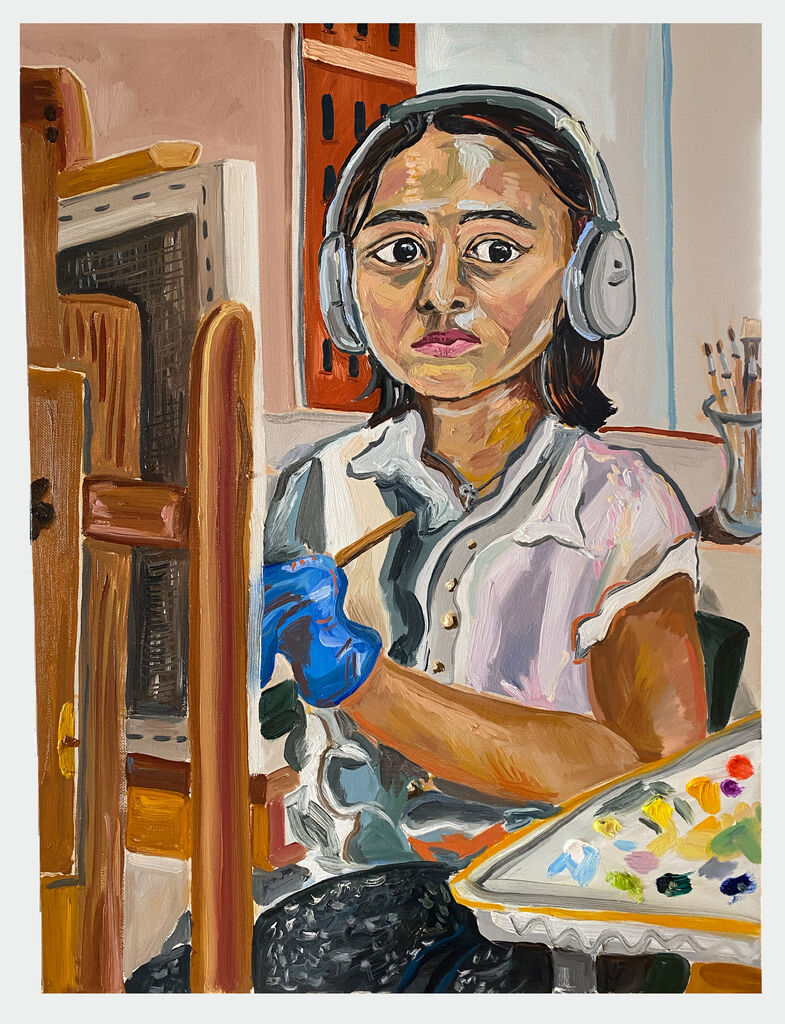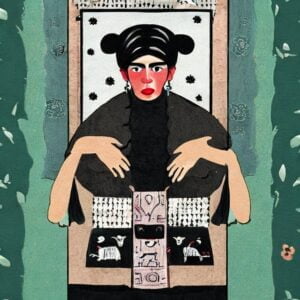(1)
In junior school, they would give us ‘holiday homework’ for the summer, so that the iced lollies and sliced mangoes would not erase whatever it was school filled our minds with. I once asked my grandmother for help with one of the assignments. These days, when her grey eyes cloud with confusion, I am taken back to that summer, when I had first seen them transform in thought; deep like cracks in asphalt.
(2)
I dislike running in hospitals, something that is especially hard to do while pushing a wheelchair through the corridors. I reach the car where my grandparents are waiting, and it takes 3 men to seat my grandmother in the wheelchair. We meet the doctor and he says what he says. On the way home, I turn the radio on to mute the silence.
(3)
“What do you think of the end?”-
“You always have to play a part,
the prey or the hunter,
more often than not,
the gun.”
“It’s confusing.”
“What does the gun signify?”
I sigh. “I don’t know, Dadi.” My mind is elsewhere.
Today’s pick is ‘Aftertaste’ by Anureet Watta. Every week, a different poet for tea-time.
“Could it tie in with the quote at the beginning?” she asks.
“No greater desire exists than a wounded person’s need for another wound.”
“So the gun signifies a wound?”
“Think deeper, Lalu.”
I roll my eyes, but think of the lines at the end of the poem.
“Violence.”
My grandmother smiles sadly. She looks different during tea-time. Focussed and engaged. Books bring this out in her.
“Anyway, I have to study for the entrance test now,” I say.
“You won’t sit a while longer?”
“Which book do you want for next week?”
“Ooh, Kamala Das.”
“We read her last week, Dadi.”
“We did?”
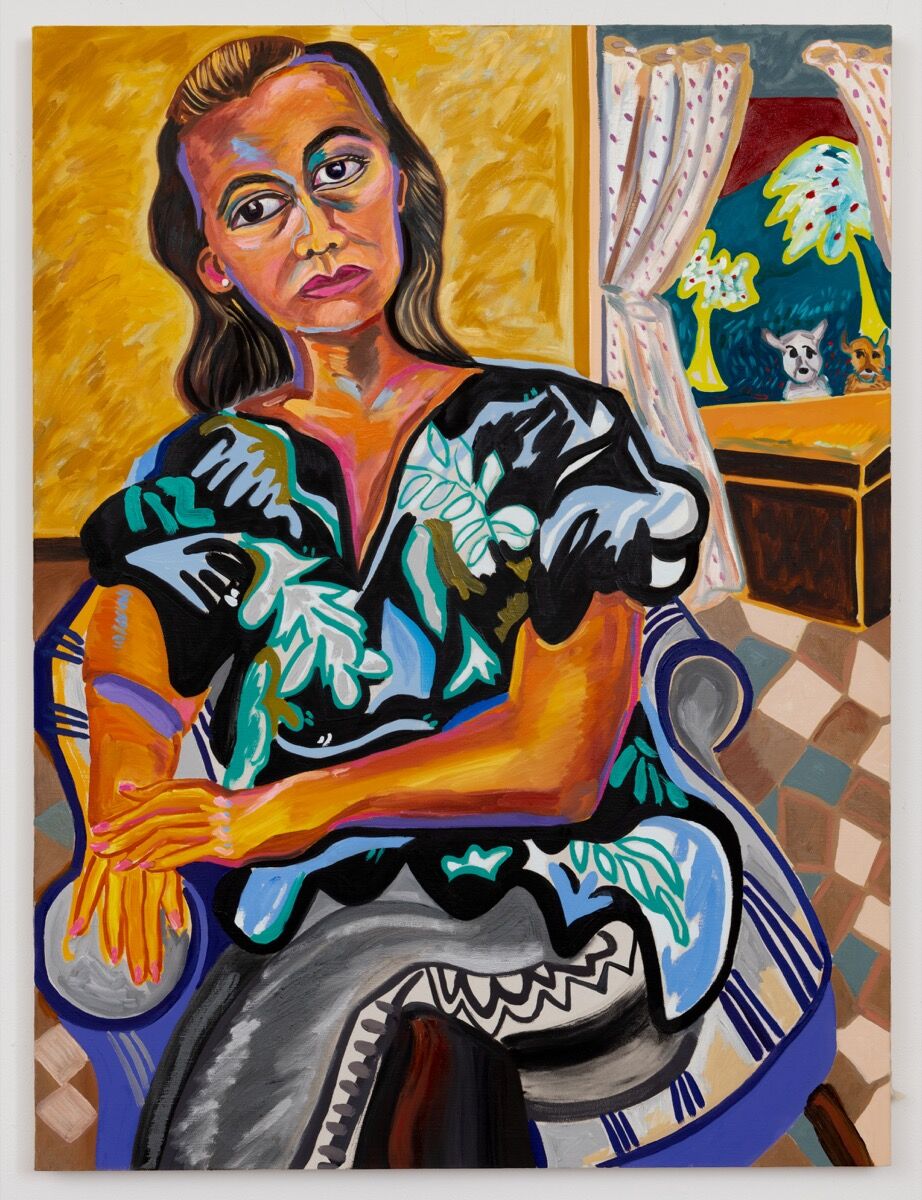
My room opens onto a little garden outside that had lain still for a long time. Lately, I have started to nurture all the green. I walk along the perimeter of the garden, then lie down in its middle. I watch the blades of grass tangle with my fingers, bending then popping back up, like a dog’s ear. This is what I do when I say I am studying for entrances. I am supposed to have given two by now. This is where I lie skywards, then turn and scream into the earth, ripping out the grass.
(4)
I work at my parents’ office for four hours a day. This, I am told, is to provide me with purpose. Waking up early, getting dressed, contributing to the family’s income: all part of ‘purpose’. When I announced my decision to take a gap year after my 12th board, it was something I was encouraged to find; this year was supposed to be about searching for what I wanted from life. Endeavours were made: I joined a language class. It was fun to learn new words, feel how the mouth widens and tongue moves differently when speaking a language foreign to them. Then came the grammar, and I grew tired of all the rules. Next, I joined a music class. I had always loved the way music moved in me. How the cry of a guitar riff would rip into me, then crawl out from my skin in goosebumps, or how keys would elicit sound like juice from ripe fruit. For a while, I practised scales, chords, triads, and then my fingers gave up on what it took to make an instrument sing.
(5)
I’m home from work when I hear the thud of the walker on the living room floor. I come out of my room to watch the spectacle. My grandmother, clutching the walker, webbed veins stark against her hands, slowly makes her way across the hall. No one is allowed to help her. She forbids it. Yesterday, she made one whole round of the house. Today, she’s on her second. My grandfather, standing at the other end of the hall, momentarily leans towards her, but his feet never leave the doorway.
In the evening, he enters my room, his hands trembling at his sides. “She’s fallen down again,” he says. I follow him to their washroom, where my grandmother is sitting in a heap on the floor. “I seem to have slipped,” she says. “I can see that,” I say. Her face breaks into a smile as though amused by the situation. I, however, find this mildly irritating. I grab hold of one arm, my grandfather the other, and we pull. But I know it will be fruitless. She asks me to call the watchmen. Two of them arrive and along with my grandfather, lift her up.
The next day, we are about to leave for the hospital again. My grandfather had to go to the bank, so it is just us both. My grandmother cannot walk or stand for too long, but she refuses us from buying her a wheelchair. She says it makes people look at her with pity. I call the lift as she leans heavily on the walker. It slowly ascends upwards, then stops midway. My grandmother groans and her hands slip to the edge of the walker.
“No no, hold on, it’s almost here,” I say, reaching to steady her.
But I think of all the standing she will have to do on the way down, and I know something bad will happen. The lift opens onto the 8th floor and she takes a tentative step towards it, then sinks onto the floor.
“Ugh,” I let out a groan of frustration. I call the watchmen once again, and see that the lift still has not shut. My grandmother’s foot is in the entrance.
“You’ll have to move back a bit,” I say. She looks around, confused.
“Dadi, you’ll have to get your foot out of the lift so it can close.”
“Oh,” she says, then tries to move. “I can’t.”
I try to move her foot but she cries out in pain.
The lift starts beeping.
“I need to stand up, have you called the watchmen?” she asks.
“They can’t get here unless you move your foot so the lift goes down!” I say, my voice rising.
“Why are you so irritated?”
A voice comes on in the lift. Please close the door.
“If you would let us get you a wheelchair, none of this would be happening!”
“I’ve told you, I don’t like the way people look at me in those things,” she says, her voice matching my own now.
“You have to use it in the hospital anyway-”
“I would like to avoid it as much as I can, so stop arguing with me!” she interrupts.
Please close the door.
“You fell the other day too-”
“When?”
“Oh, of course you don’t remember.” You keep falling down and you’re so difficult-”
“It’s not like I do it on purpose.”
“And you forget everything all the time-”
Please close-
“Will you stop being so rude?!”
“WILL YOU STOP GETTING SO OLD?!”
A long silence follows.
My grandmother looks crestfallen.
Then, with a lot of effort, she pulls herself backwards, moving her foot out of the lift.
The doors close.
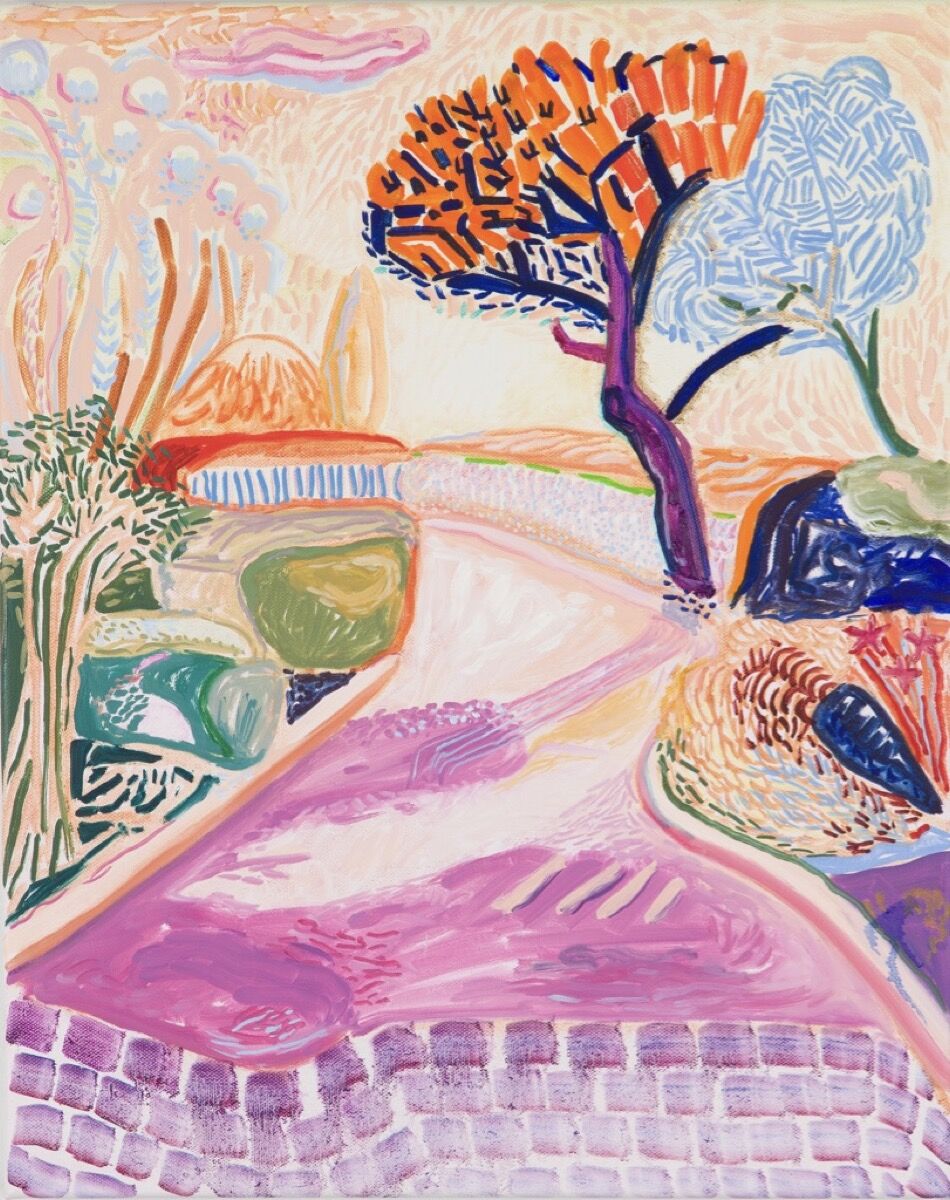
(6)
The rest of the day passes slowly. I feel distant from my body and thoughts. It is like I can sense them at the edge of my consciousness, but there is something keeping me disconnected from them. Like there is a hubbub of emotions boiling together just outside me, but I do not want to let them in just yet. In my garden, I loop blades of grass around my fingers. I let the sun envelop me in its warmth. Finally, I lie on the grass, palms open at my sides. I stay like this for hours.
“So, this is where you spend your ‘study time’.”
I sit up with a start.
“Dadi,” I say. “Come sit.”
My grandfather helps her onto the grass and then leaves.
“You didn’t make it to tea,” she says.
“I didn’t know what to say.”
My grandmother is silent.
“I’m sorry I yelled at you. I know it came out wrong, but it scares me.”
“What does?”
I look at her. “That you’re getting older and you refuse help.”
She sighs. “I suppose you’re right. It’s alright, Lalu.” She pauses, then looks around, her eyes narrowing.
“You’ve been taking good care of this garden. Do you spend a lot of time here?”
“Yep.”
She locks eyes with me, and I am sharply reminded of their ability to pierce through and see what others often miss.
“Can I ask you something?”
I can sense what her question will be. “Yes, of course.”
“Have you given any of the entrance exams?”
I see no point in hiding it now and slowly shake my head.
“Why not?”
I look away.
“Lalu, you can tell me anything.”
I take a deep breath, pause and then say, “I am so….bored. I am so constantly bored of everything, nothing seems to hold value for me. I know giving these entrances is what I’m supposed to do because I’m supposed to go to college and get a degree and I know exactly what I’m ‘supposed’ to do but it all just seems so fruitless. Nothing interests me, and sometimes I don’t see the point in trying, so I don’t.”
My grandmother is silent for a while, then asks, “For how long have you felt like this?”
“Forever.”
“Lalu, I want to understand, but I think there are things you’re not able to understand yourself.”
I nod.
Maybe someone else could help us recognize what you’re feeling.”
“What do you mean?”
“Maybe we could consider speaking to a psychologist.”
I shake my head firmly. “I don’t believe in all that.”
She laughs. “How about a deal then? You consider seeing someone, and in return, I’ll consider the wheelchair.”
I look up at her. “You mean that?”
She nods, smiling. “It could be great, you know, someone to share your thoughts with, help you piece together what you feel.”
I pause, then say, “Do you think there’s something wrong with me?”
“Of course not, people don’t go to psychologists because there’s something wrong-”
“But still – what if there is something wrong with me?”
“Then what you are, Lalu, is not wrong, but different. And there is no shame in being different. No shame in wanting to understand yourself. As you come to know who you are, you begin to weave all of your thoughts and feelings, all the things that make you you, into your greatest power.”
I smile. “I do like the sound of that.”
We sit in silence for a while.
“You know, we were to start with a new poet today,” she says.
“Oh yes, whom would you like?”
Her eyes light up.
“Kamala Das?”
I bring the book and we take turns reading the poems aloud.
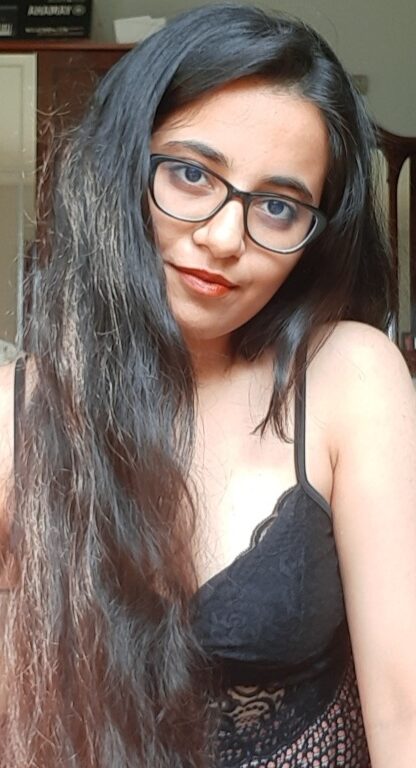
Hazel Kaur
Hazel is a writer from Pune, India. She loves cozy bookstores, brand-new journals and the possibilities their pages contain. You can find her writing @hazelkaur__ on Instagram.
